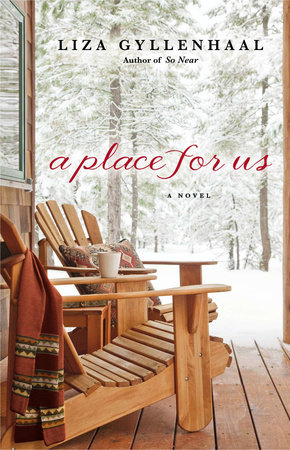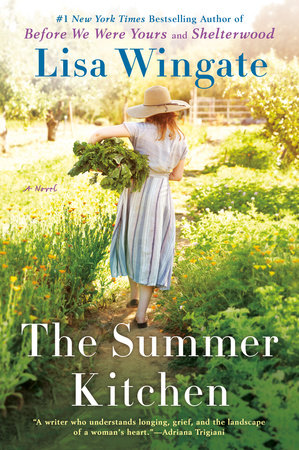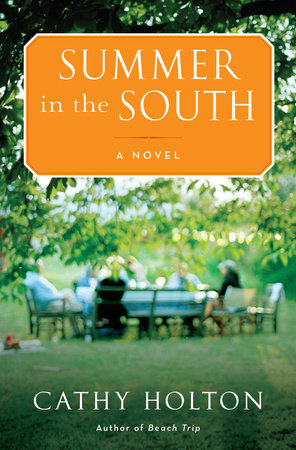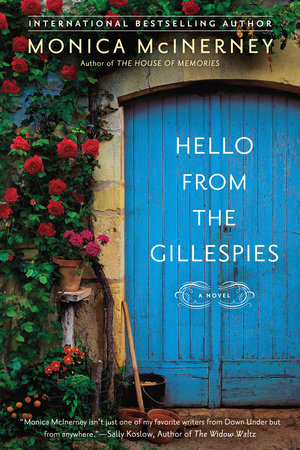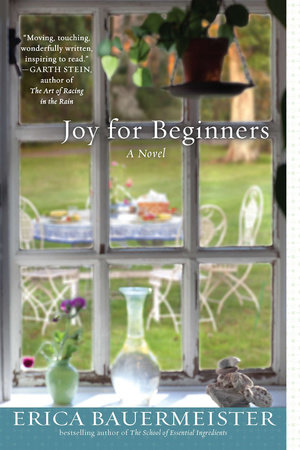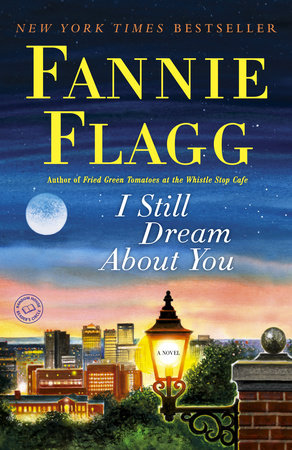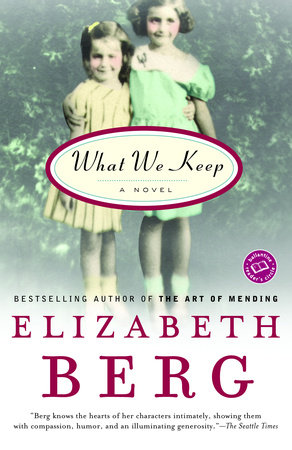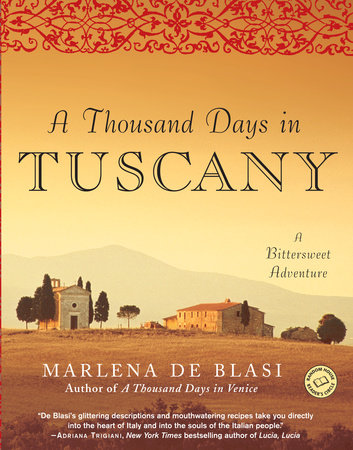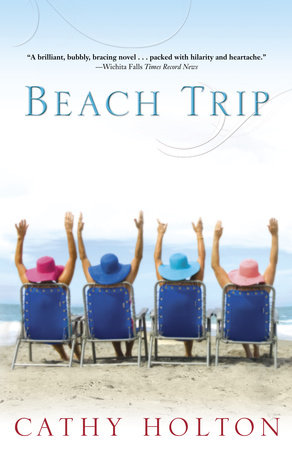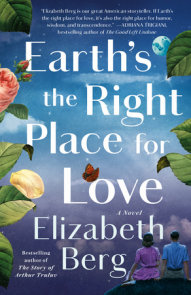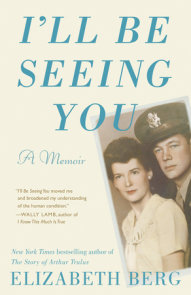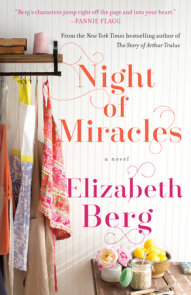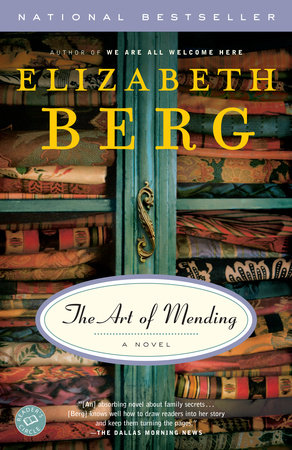Author Q&A
A CONVERSATION WITH ELIZABETH BERG
Q: What kind of kid were you? Are any of your characters reflective of yourself at a younger age?
Elizabeth Berg: A dreamy, oversensitive type with a powerful imagination. Once, when I was around four or five, I was bored and I was bugging my mother, asking her over and over to play with me. Finally, in exasperation, she said, “Go outside and count cars!” I did exactly that—quite happily, as it turned out. I remember it to this day: sitting on a stone wall, counting the cars that passed. Now, this in itself is not interesting. But precisely because it is not, it allowed my imagination to go to work. I counted cars and made up little stories in my head. I thoroughly enjoyed myself, and I learned from that day forward that there is much in the mind to play with. I was also a lover of animals, a lover of fairy tales, and a ferocious eater. After everyone had finished eating and left the table, I would go around and finish what was left on all their plates. I kept a diary. I had serious crushes. I cried on the last days of school, mostly because I felt sorry for the teachers—I thought they’d miss us. I loved the Three Stooges. I still do—nyuk, nyuk. As for my characters, yes, in some respects a few of them are reflective of my younger self. I was an outsider, for example, as Katie is (Durable Goods, Joy School, True to Form). I still am one, really. I’m also like my younger characters in that I’m drawn to and instructed by nature.
Q: Who was your first love?
EB: Billy Harris. Fourth grade. What a swell dresser. He had some sort of class job that required him to write on the blackboard every morning. I would stare at his back and sigh and write “Mrs. Billy Harris” on my tablet. He never looked my way. He, like every other boy in the class, was in love with the raven-haired Cynthia. All the girls were in love with Cynthia, too—she was really, really cute. On Valentine’s Day, her box was stuffed.
Q: When and how did you decide to become a writer?
EB: Oh, well, I was always a writer. I think writers are born, not made. Writers are watchers, note takers, inclined to have a need to express things by writing them down, whether they try to get published or not. But I decided to try in 1985, when I was thirty-five. I sent an essay to a magazine and won a contest. After that, I wrote nonfiction for magazines for ten years, then moved into short stories, then into novels.
Q: Where do you find the inspiration for your books? If you haven’t experienced something you are writing about, how do you make your stories seem so real?
EB: Inspiration is everywhere. In life experiences, in the newspaper, in snatches of conversations, in nature, in people’s grocery baskets. I think the most important quality for a writer to have is empathy. So even though we haven’t always experienced what we write about, we can imagine what it’s like. That’s our job, to put ourselves in someone else’s shoes, to feel what they do and let the reader feel it, too.
Q: What’s a typical writing day like for you? Do you have a certain process or do you just sit down and write?
EB: I like to write first thing, before I’ve been crushed by the newspaper or distracted by anything else. I like to still feel connected to the dream state, to the great unconscious. I write quickly, straight out, not editing as I go—that I save for the next day. I write for about three to four hours, quite intensely, and then walk the dog, go to the post office, make dinner. I don’t have any certain process; writing for me is a highly intuitive thing.
Q: What does the room where you write look like?
EB: It’s a bedroom that’s been converted into an office with a builtin white desk and many, many bookshelves. I have my book jackets framed and mounted on the walls, and there are many photos of family and friends here and there. I have three fetish stones to the left of my computer, looking out in three directions. At my feet is a dog bed, where my golden retriever, Homer, often lies. I have a comfortable chair with a hassock to sit in when I read or edit. I have quotes taped to my computer. One says, “Action is less important than mood, and mood is summed up by the Japanese word aware.” I have no idea where I got it.
Q: Would you ever like to write a children’s book? What about diving into another genre?
EB: I would love to write a children’s book and will, someday. As for another genre, I just wrote historical fiction: The Handmaid and the Carpenter is a Christmas book about Mary and Joseph that will be out in October 2006, I believe.
Q: What do you most want readers of your books to come away with?
EB: A feeling of connection. And of satisfaction. A lot of readers tell me, “You see right into my life,” and they like that. They say it makes them feel seen and heard and appreciated. I am gratified, too, that many people appreciate the detail in my novels—they, too, understand the worth of the “small things.” I’ve met a lot of my readers and I really love them—they tend to be sensitive, generous people, and they tend to laugh and cry easily, like me. And they also bring me recipes, which will be very useful when I finally write the cookbook I’d like to write.
Q: How do you balance being such a prolific writer and having a “normal” life?
EB: It’s a struggle, quite honestly. I’m always working on something. I take weekends off most of the time to remember that there’s more to life than metaphors.
Q: If you could visit three of your favorite authors, who would they be?
EB: Alice Munro, Anne Tyler, and Ellen Gilchrist. If I could visit dead authors, I’d head right over to E. B. White, though I’m so in awe of him I’d probably just sit at his feet and weep. He’s the master of clarity, of understated humor, of palatable political conviction.
Q: What are your friends like? You write so beautifully about friendship, especially female friendship. What do your friends bring to your life and your writing?
EB: They save me. They are open, warm, funny, creative, amazingly generous. They tell me great stories. (Some of them make it into my books.) They teach me perspective and the worth of kindness. They are very wise and compassionate. I can ask them anything or tell them anything.
Q: What are you most afraid of?
EB: That we will become increasingly more uncivilized and the world will destroy itself before my grandchild has a chance to live a long life. Also, I fear centipedes and raw liver.
Q: What kind of person are you?
EB: Overly idealistic. Forgetful. Sentimental. A person who must pet every dog I pass and attempt to engage him or her in conversation. Someone who is uncomfortable in fancy restaurants and happy in diners that are frequented by “characters.” I’m a lover of flowers—I need them; they’re always in my house. I’m passionate about things to the point of annoyance. I’m not always a good listener. I don’t have any mechanical skills and wish I did. I’m a good cook. I’m a better eater. I make my bed every day. It’s all I can do to not make them in hotels. I carry a soft hankie in my purse that is too pretty to use. I would like to go to Japan. I’m deeply shy, but I put on a good show to overcome it. And self-critical. And introverted. Which will make you understand why I now feel I’ve said far too much.
Q: What projects are next for you?
EB: Okay . . . Adapting The Pull of the Moon for the stage.Writing an original play. Writing a screenplay. Doing another short-story collection and two more novels. And then retiring so I can read a thousand books a year. And cook. And walk around the city and the country. And spend more time with my daughters. And take driving trips on back roads. And fiddle around in the garden. And watch movies in the afternoon. And learn Japanese. And take voice lessons. And sit in on physics classes at the University of Chicago. And get another dog. Or two.
Q: Finally, if you were to plan a “year of pleasures,” what would you like to see or do?
EB: See above.



